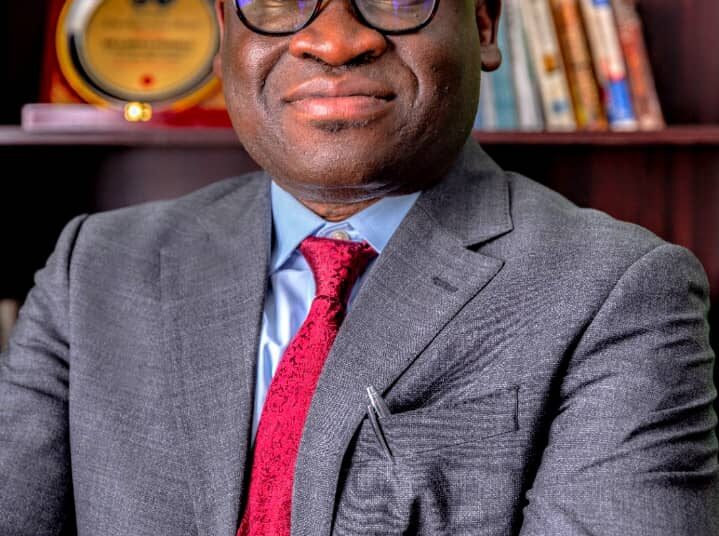In this interview with LEADERSHIP, Country President of Schneider Electric West Africa, Ajibola Akindele, reveals what needs to be done to check rural-urban migration, create economic activities and jobs in rural areas and steps Nigeria needs to take to become an industrialised economy. Excerpts.
Nigeria faces daily rural-urban migration; do you think electrification of the rural areas can curtail it?
Without a doubt, it will curtail it. Now, if you look at countries, the level of development is directly proportional to the amount of power generation that they have. People move from rural areas to urban areas in search of better life, job opportunities, better healthcare, and better education. One of the fundamental reasons why they don’t have that in the rural areas is lack of power. If we can empower people in rural areas and give them the right amount of power, it will create economic activity and migration to the urban areas will decrease.
Nigeria is still grappling with poor and inconsistent electricity supply despite billions of dollars invested in the sector. How do you think this can be addressed?
From the mid-80s literally to the early 2000s, there was very little investment in the sector and this is why we are grappling with a lack of adequate power supply. We are now just beginning to invest. If you look at the context of where we are at the moment, we will need about $3 billion of investment annually over the next 15 years to have what will be required to call Nigeria an industrialized nation. Secondly, we have to improve governance, regulation, mitigate risk, develop people and skills acquisition within the sector because it is not just about throwing money and there has to be collaboration between the public sector, the private sector and also financial institutions.
Do you think energy mix can be a solution to our rural electrification problem?
Yes, an energy mix can be an effective solution to this. We have to think about a decentralized energy mix, where energy is generated closer to the point of use and that helps to reduce wastage. So, microgrids should come into play, hybrids of microgrid and the grid, mini-grids, solar, and potentially wind. All options should be on the table.
Are you playing any role in accelerating rural electrification in Nigeria and who are you partnering with?
Yes, we partner with various stakeholders including government agencies, non-governmental organizations (NGOs), and local companies. For instance, we partner with EM-ONE, an engineering and technology firm, to localize and industrialize solar mini-grids in West Africa, develop and execute distributed renewable energy projects. Off grid microgrids were installed across Primary Health Centres in Kaduna state, generating 1300 MWH of energy per annum.
Thanks to our partnership with ADEME and Solar Sisters, we came up with Mobiya Lite distribution to last mile communities across several states in Nigeria investing in local women entrepreneurs to start, grow and sustain successful clean energy businesses. Since 2009, our A2E program has electrified 46.5 million people, trained more than 578,709 students, 8,500 trainers, supported more than 8,200 entrepreneurs and invested in 26 companies.
For instance, in collaboration with REA and GVE projects, we deployed 100 kWp solar-hybrid mini-grid in Akpabom rural community in Akwa Ibom state, connecting SMEs, households, schools, health centres to sustainable solar power. Akpabom is a community with a population of over 2,000 people whose major economic activities are fishing and farming.
We deploy off-grid and mini-grid solutions powered by renewable energy sources such as solar and hybrid systems. The Villaya Flex is a packaged microgrid that can be deployed off-grid, specifically for off-grid solutions in modules of 50 kilowatts. It can be scaled in multiples, and you can have it up to one megawatt. We also conduct training programs to empower local communities to manage and sustain their electrification infrastructure.
Don’t you think it is high time Schneider Electric considers manufacturing and assembling its products in Nigeria?
We are committed to local manufacturing and assembly in Nigeria to promote job creation, technology transfer, and economic growth. We have already started working in that direction. I would say more than half of the engineering of our solutions is done locally in Nigeria. We play in different spaces within the sector and within the spaces that we play in, where local content requirement is essential; we usually have the highest certification for local content.
However, manufacturing will be more of a long-term goal. We are already in conversation with some of our partners as to some of the more basic stuff, how we can get them to be manufactured in Nigeria and locally. It is something that we are thinking about. It is at the forefront of what we do, and it is something that we believe in.





